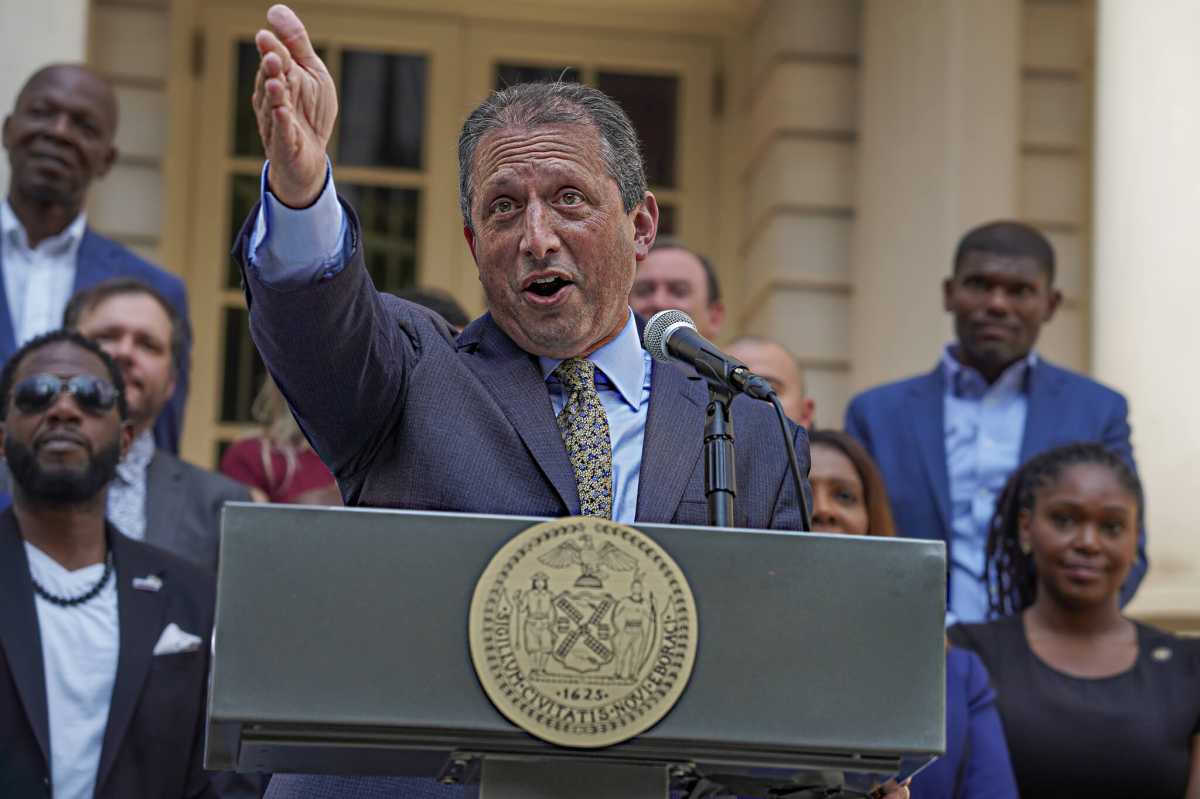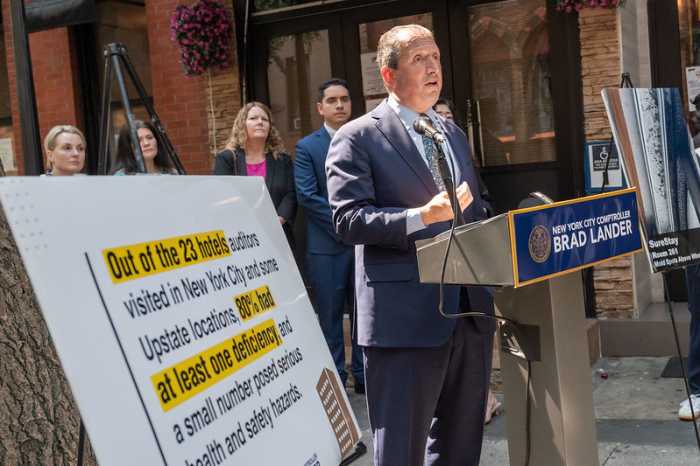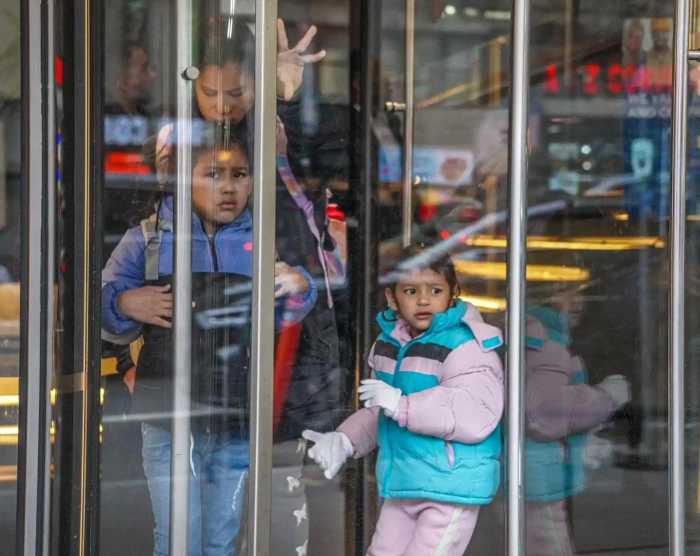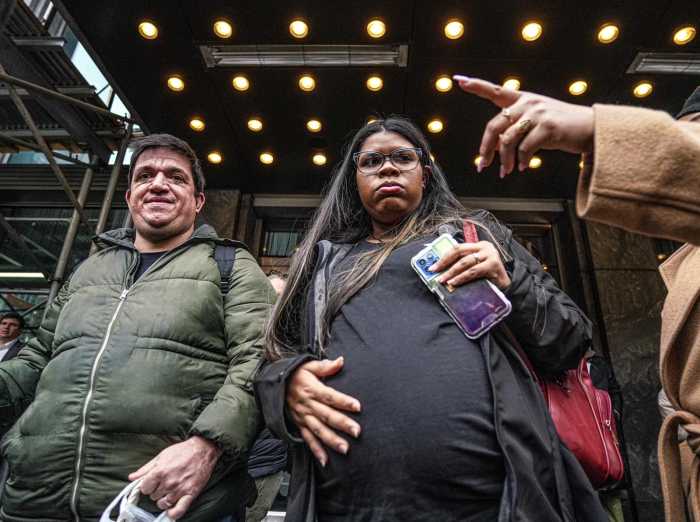City Comptroller Brad Lander has revoked the city’s blanket prior approval for striking emergency contracts with private for-profit companies to provide migrant services amid the ongoing influx, his office confirmed on Tuesday.
The blanket prior approval, which Lander granted the city in July 2022 and ended last week, has allowed Mayor Eric Adams’ administration to contract migrant services — for housing and meals — from private vendors without each contract having to be approved by the comptroller’s office and the city Law Department.
Lander’s decision came after his office last week found in a 21-month review of city emergency contracts — 80% of which dealt with the migrant crisis — a lack of transparency in how the administration has been handling the procurement process. Specifically, Lander’s office discovered “significant delays” in the city’s reporting of new contracts, an average of five months after the start of the contract term, and a failure to disclose subcontractors.
The policy change comes in the wake of Lander retroactively rejecting a $432 million no-bid contract with the medical services controversial company DocGo, after finding issues with how the firm was chosen and whether it had the proper experience in providing migrant services. Lander first threatened to revoke prior approval after nixing the DocGo contract.
“Our review found extensive failures to report subcontractors despite problems that surfaced with many of them and 80% have no performance reviews at all,” said Lander spokesperson Chloe Chik, in a statement.
“In response, we concluded that the most prudent course for the city’s fiscal health and integrity would be to require City Hall to seek prior approval before using emergency procurement on a case-by-case basis, as required by the City Charter, rather than blanket approval to use whenever they want,” she added. “We will continue to conduct fast and thorough reviews of emergency contracts, as we always have done.”
Lander’s revocation of blanket prior approval was announced to the administration in a letter sent last Thursday, according to several published reports.
City Hall swiftly decried Lander’s move, saying it will hinder the city’s ability to continue to quickly respond to the influx of thousands of migrants each week.
The mayor said Lander’s action is “tying our hands,” when asked about it during a Tuesday press conference. He also bashed the comptroller for returning from his trip to Washington D.C. last week with “no real answers,” emphasizing Lander should focus on pressuring the White House to give the city more funding instead of revoking pre approval.
“He went to D.C. and he came back with tying our hands, that just sort of defies logic to me [when] we have to make these quick decicions on dealing with these contracts and dealing with placing people in housing.” Adams said. “So I’m a little dissappointed that when he returned from D.C., he didn’t come back with any real answers.”
Deputy Mayor for Health and Human Services Anne Williams-Isom added at the briefing that the city has been able to keep migrant families from sleeping on the streets because of its ability to quickly stand up shelters through emergency contracts.
“When we say that no families and children have slept on the street, that’s not just based on hope, right?” Williams-Isom said. “That’s based on us doing and making sure that we have what we need available. So anybody who wants to think that what they need to do at this time is to try to limit us, I don’t get how you get to that conclusion.”
The mayor’s critics have argued that his spending on emergency contracts with private companies has in large part fueled the massive price tag of the migrant crisis thus far. Adams says his recent $3.7 billion budget cuts, aimed at closing a projected $7 billion gap over the next fiscal year, were driven by the ballooning cost of providing for migrants.
Following the release of the comptroller’s report last week, Council Speaker Adrienne Adams said the city should move away from contracts with private vendors and toward utilizing the services of local nonprofits.
“This highlights the need for the city to move away from emergency contracts,” she said at the time, “especially with for-profit companies that are inherently expensive, and instead shift to non-profit organizations with a greater expertise and commitment to providing services in the long-term public interest of our city.”
But several for-profit companies, including DocGo, look to be on track to earn a fresh round of contracts from the city for the next year, the New York Daily News reported on Tuesday. Those contracts are being handled through the city’s public hospital corporation — Health + Hospitals — and are not subject to review by the comptroller’s office.
This report was updated at 2:30 on Tuesday Dec. 5.
Read more: Mayor Adams debates City Council bill on police stop-and-frisk data.







































